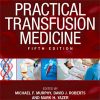Immunological Dysfunction Persists for 8 months Following Initial Mild-to-Moderate COVID-19 Infection
nature.comA proportion of patients surviving acute coronavirus disease 2019 (COVID-19) infection develop post-acute COVID syndrome (long COVID (LC)) lasting longer than 12 weeks.
Here, we studied individuals with LC compared to age- and gender-matched recovered individuals without LC, unexposed donors and individuals infected with other coronaviruses.
Patients with LC had highly activated innate immune cells, lacked naive T and B cells and showed elevated expression of type I IFN (IFN-β) and type III IFN (IFN-λ1) that remained persistently high at 8 months after infection.
Using a log-linear classification model, we defined an optimal set of analytes that had the strongest association with LC among the 28 analytes measured.
Combinations of the inflammatory mediators IFN-β, PTX3, IFN-γ, IFN-λ2/3 and IL-6 associated with LC with 78.5–81.6% accuracy.
This work defines immunological parameters associated with LC and suggests future opportunities for prevention and treatment.

















